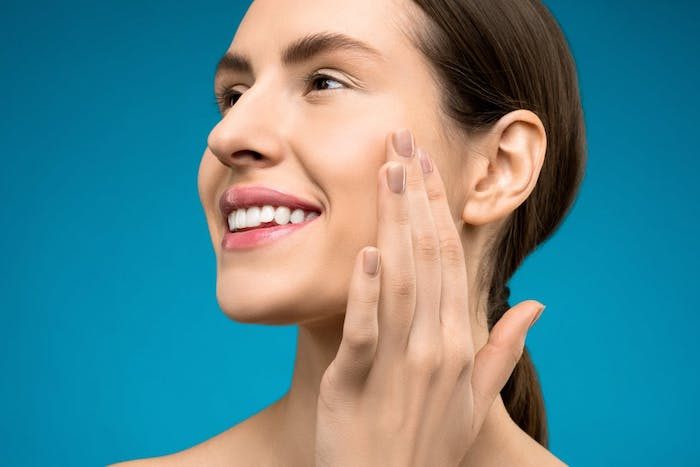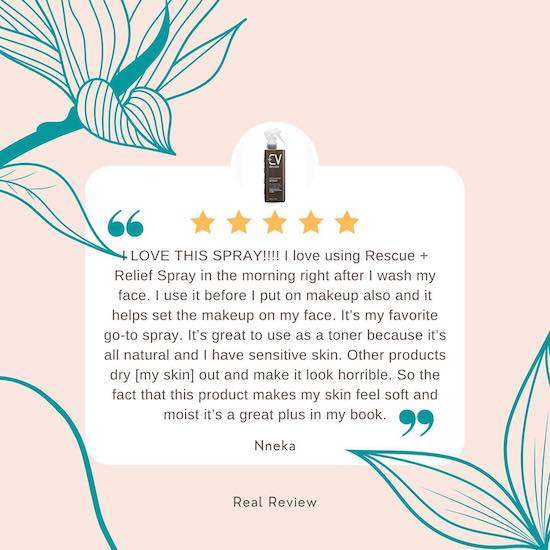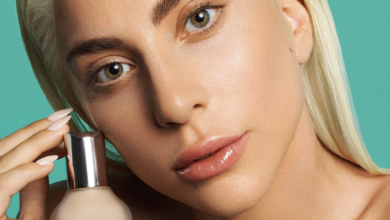Is makeup bad for the skin? How to maintain that radiant look

You mix that foundation in and you hesitate and wonder, “Is makeup bad for the skin?”
It is a common concern. Although makeup is often part of our daily routine and a tool for self-expression, it can also be a problem.
Does it clog my pores? Drying out my cheeks? Cause acne?
Below, we explore this topic and give you some tips to keep your skin glowing without giving up your favorite cosmetic products!
Is makeup bad for the skin? Sometimes
Although makeup itself is not necessarily harmful to your skin, there are some cases where it can cause skin problems. It all depends on which products you choose, how you use them and how you care for your skin between applications.
Clogged pores and pimples
One of the most common problems with some makeup products is that they can lead to clogged pores and more breakouts. This usually occurs when you use heavy, pore-clogging products, such as products containing silicone, mineral oil or waxes, as these can settle into the skin. They can also trap oil, bacteria and dead skin cells, creating the perfect conditions for acne.
Take action
The problem is especially troublesome for people with oily or acne-prone skin. Choose makeup labeled non-comedogenic (formulated not to clog pores) to reduce the chance of your skin breaking out. Then make sure that you thoroughly cleanse your skin of all makeup every night before going to bed. Use a soft skin brush to get into each pore and rinse thoroughly.
Dryness and skin irritation
Some makeup products can strip the skin of its natural moisture, leaving it dry and irritated. Alcohol-based formulas, long-lasting lipsticks and setting sprays often leave skin dry and irritated. (That’s why we always recommend our Rescue + Relief Spray for fixing: it’s non-comedogenic and naturally hydrates the skin!)
Also, many foundations, especially matte or long-lasting formulas, are designed to control oil and provide a flawless finish. These products may contain ingredients that absorb excess oil, but can also dry out the skin. Concealers tend to be more concentrated than foundations and often contain drying agents to ensure they stay in place all day. This can result in flaky or crepey looking skin, especially under the eyes.
Even tinted moisturizers, marketed as a hydrating alternative to foundations, can be drying if they contain a low concentration of moisturizing ingredients and rely on pigments and other additives that may not adequately hydrate the skin.
Take action
Look for products that contain moisturizing and nourishing ingredients such as hyaluronic acid, aloe vera, squalane, natural oils, etc. These help maintain moisture levels while providing the desired coverage. For those with sensitive skin, try our hypoallergenic formulas from CV Skinlabs that help reduce dryness and flaking.
Always make sure you apply a high-quality moisturizer before your foundation. We recommend our award-winning Calming Moisture. It helps nourish and protect the skin barrier and restore radiance – and makeup artists love it! (More on that below.)
Dull and tired looking skin
Failure to remove makeup at the end of the day can lead to a buildup of product, dirt, and oils. This residue clogs the pores and can disrupt your skin’s natural renewal process. The result? Dull, tired-looking skin. Sleeping with makeup in particular speeds up this process. Doing this regularly can contribute to premature aging.
Take action
Cleanse and moisturize your skin every night before bed! Try CV Skinlabs Calming Moisture to help restore a healthy skin barrier and radiant appearance, especially if you have sensitive reactive skin.
Irritated and reactive skin
Some individuals may experience allergic reactions to certain ingredients in makeup products.
- Irritant contact dermatitis: This reaction occurs when a harsh ingredient damages the outer layer of the skin. Common culprits are fragrances, preservatives and alcohols. Symptoms may include redness, burning and itching shortly after applying the product.
- Allergic contact dermatitis: This reaction occurs when the immune system mistakenly identifies a specific ingredient as harmful and defends itself against it. Ingredients such as parabens, preservatives that release formaldehyde and certain dyes are usually responsible. Symptoms may include swelling, rash, or hives that develop after repeated exposure to the allergen.
Take action
Always test a new product on a small area of skin before use to ensure you are not allergic to it. Read labels carefully and choose clean makeup products.
Using unhealthy or poor quality products
The ingredients in your makeup are just as important as those in your skin care products. Many conventional makeup products contain potentially harmful chemicals, including parabens, phthalates, synthetic fragrances and preservatives that release formaldehyde. These can cause irritation, inflammation and even long-term skin damage in sensitive people.
Take action
Read product labels carefully and choose clean makeup brands that prioritize non-toxic and skin-friendly formulations.

Is makeup bad for the skin? How to keep your skin healthy
Fortunately, you can still wear makeup and maintain a healthy, glowing complexion by taking the above actions and adopting the following skin care habits.
1. Always remove makeup carefully.
Never go to bed with your makeup still on! Use a gentle makeup remover or cleansing balm to dissolve the makeup, then cleanse a second time with a mild facial cleanser to make sure every trace is gone. Double cleaning is essential for removing hard-wearing or waterproof products.
2. Choose makeup with skin-healthy ingredients.
Look for makeup labeled non-comedogenic, which means it won’t clog pores, and hypoallergenic, which means it’s less likely to irritate. Look for formulas with skin-nourishing ingredients like hyaluronic acid, vitamins and plant extracts.
3. Stick to your healthy skin care routine.
The secret to healthy skin under makeup is a solid skin care regimen. Start with the cleansing recommended above, then use a gentle toner to balance your skin’s pH. We recommend our Rescue + Relief Spray, which helps remove redness and irritation and balances the skin.
“I like to use CV Skinlabs Rescue + Relief Spray on my clients before applying makeup,” says Julie Harris, celebrity and fashion makeup artist, “because it soothes and soothes any redness and instantly hydrates.”
Follow your toner with a quality moisturizer. It not only hydrates the skin, but also creates a protective barrier that ensures your makeup applies evenly without drying out your skin. We recommend our Calming Moisture.
“Calming Moisture minimizes redness, hydrates and helps keep skin healthy no matter what is done to it,” says Kristen Arnett, international makeup artist and healthy beauty expert.
4. Avoid sharing makeup.
Sharing makeup can introduce bacteria to your skin, which can lead to breakouts and infections. Always use your own products and clean your brushes regularly.
5. Give your skin a break.
Go makeup-free a few days a week to let your skin breathe and recover. Makeup-free days allow your natural oils to replenish and reset your skin. It also helps if you pamper your skin on those days with an extra hydrating mask or an exfoliating treatment.
6. Stay hydrated inside and out.
Hydration is the key to healthy skin. Drink plenty of water throughout the day and use a hydrating mist like our Rescue + Relief Spray to maintain moisture levels, especially if you wear makeup often.
7. Test new products with patches.
Before trying a new makeup product, always do a patch test on a small area of skin to make sure you won’t have a reaction to it. This is especially important if you have allergies or have had reactions to products in the past.
Are you afraid that makeup is bad for your skin?
Featured image by Shiny Diamond via Pexels.





